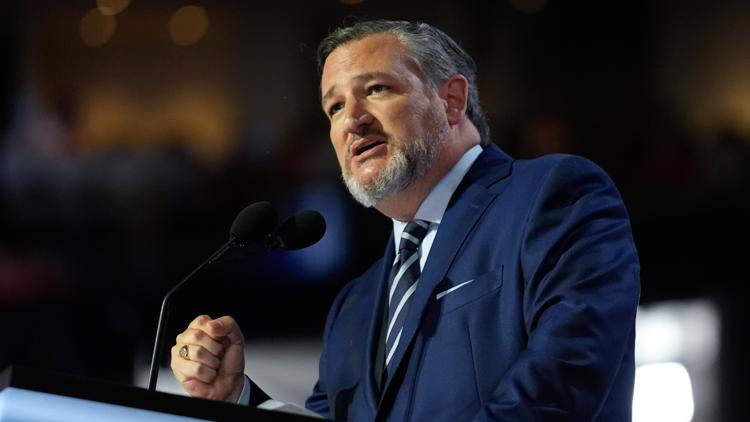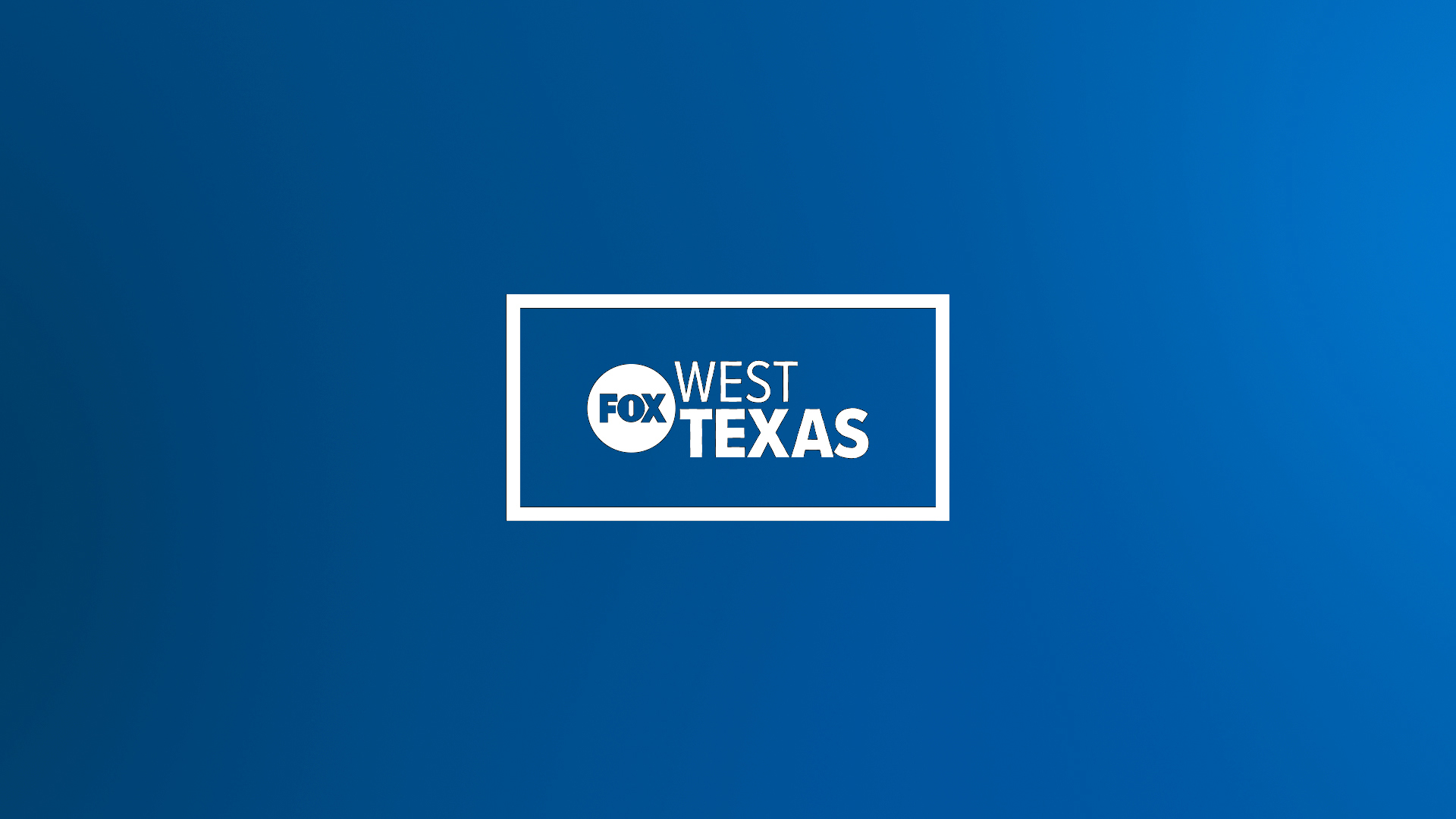TEXAS, USA — Sen. Ted Cruz will meet his Democratic challenger, U.S. Rep. Colin Allred, on Tuesday in their only debate before the November election on WFAA.
The Texas Debate will be at 7 p.m. Oct. 15 at WFAA’s studio and broadcast across Texas. It will be the only debate between Cruz and Allred.
The debate will air on WFAA and be livestreamed on the WFAA+ app. The streaming app is available to download on Roku, Apple TV and Amazon Fire, as well as on iPhone and Android. Coverage will start on WFAA+ at 3 p.m. Oct. 15.
Polls have shown the race to be surprisingly close, with one poll by the Texas Hispanic Policy Foundation showing the two to be virtually tied.
Before the two face off on Nov. 5, here's a look at the incumbent senator and what his platform is.
Where is Ted Cruz from?
Cruz, 53, was born in Calgary, Alberta, Canada to an American mother and a Cuban father before he moved with them to Houston as a young child. After graduating from a private high school in 1988 as valedictorian, Cruz attended Princeton University, where he studied public policy. He then graduated from law school at Harvard University.
After graduation, Cruz clerked for several judges, including former Chief Supreme Court Justice William Rehnquist, who was a staunch conservative and federalist, and well known for dissenting in Roe v. Wade and voting to end the recount in Florida during the 2000 Presidential Election.
Cruz joined George W. Bush's presidential campaign as a domestic policy advisor in 1999, and once Bush was elected, served as an associate deputy attorney general in the Justice Department, as well as the Federal Trade Commission's director of policy planning.
In 2003, Cruz was appointed to his first office representing Texas as the state's attorney general. The office was created in 1999 by then-Texas Attorney General John Cornyn, also a future Texas senator, and Greg Abbott, who was Texas' attorney general in 2003, appointed Cruz into the role. The solicitor general handles appeals involving the state government.
Cruz first gained nationwide attention in this role arguing several high-profiles cases before the U.S. Supreme Court, including defending the Ten Commandments monument outside the Texas State Capitol, and defending the constitutionality of requiring students to recite the Pledge of Allegiance.
After returning to private practice for a few years in 2008, Cruz began his first Senate campaign in the 2012 Republican primary to replace the retiring Sen. Kay Bailey Hutchison, running as a Tea Party candidate, winning in what the Washington Post called "the biggest upset of 2012." He has held his senate seat since first winning it in the 2012 election.
What is Ted Cruz's campaign platform?
Cruz was a benefactor of the Tea Party movement that began after the election of Democratic President Barack Obama in 2008. The Tea Party ran off a platform of fiscal conservatism and stricter immigration laws with a libertarian bent. Despite the movement's decline since 2016, Cruz's platform largely ran and still runs in alignment with its platform, as its idea have been largely absorbed by the Republican Party as a whole.
Where did Ted Cruz go to school?
On Cruz's website, under education, Cruz states he believes in school choice, which would provide families with other options besides private schools for their students. Abbott has been a strong proponent for school choice, trying to pass vouchers for school choice during the last state legislative session. Cruz calls school choice "the civil rights issue of the 21st century."
However, critics of school choice argue it would hurt public schools, and would be privatizing and profiteering off the education system. In 2017, Cruz voted in favor of appointing Betsy DeVos to be Secretary of Education, who has spent decades advocating for school choice, school vouchers and charter schools.
What is Ted Cruz's position on oil and gas and environmental issues?
Cruz's platform states he fights to protect the oil and energy sector in Texas, most recently introducing legislation with Cornyn that would prevent a court from vacating a previously authorized liquid natural gas permit. In April, he voted in favor of a bill that would have forbid the EPA from enforcing multi-pollutant emissions standards for certain model 2027 or later vehicles.
In 2020, Cruz voted against the Great American Outdoors Act, which established the National Parks and Public Land Legacy Restoration Fund and permanently funded the Land and Water Conservation Fund.
Cruz introduced a resolution earlier this year that was passed to ban manufacturers from selling furnaces that convert less than 95% of fuel into heat.
“This administration doesn’t care that their radical climate agenda will have a catastrophic impact on American families and small businesses," Cruz said in a statement at the time. "Eliminating all non-condensing natural gas furnaces will only serve to further hurt families who are already struggling to get by."
What is Ted Cruz's stance on abortion?
Although Cruz has been uncharacteristically quiet on his abortion stance in the leadup to this election, he has co-sponsored multiple bills that would make it more difficult for women to get an abortion. One, introduced in February 2020, would make it a crime to perform an abortion after 20 weeks of pregnancy. Another would require medical practitioners to save the life of a child born alive following an attempted abortion.
What is Ted Cruz's stance on immigration?
Cruz has introduced bills in the past to build a wall on the U.S.-Mexico border. He has also sponsored bills to increase the maximum prison term for undocumented migrants who enter the U.S. after being deported or being denied admission. He also co-sponsored legislation in 2015 that would have forbidden sanctuary cities from collecting federal grant funding.
What is Ted Cruz's election results and history?
This will be Cruz's third election, having won his past two. He also had a failed presidential bid in 2016, dropping out during the primary phase of the election that was ultimately won by Donald Trump.
2012
Cruz won his first election for Senate over Democrat Paul Sadler, winning 56.46% of the vote, 4,440,137 votes in total.
2018
Cruz narrowly held onto his Senate seat in his 2018 re-election campaign when he was challenged by then-U.S. Rep. Beto O'Rourke from El Paso. Cruz won in a stunningly close race with 50.9% of the vote, 4,260,553 votes overall.



